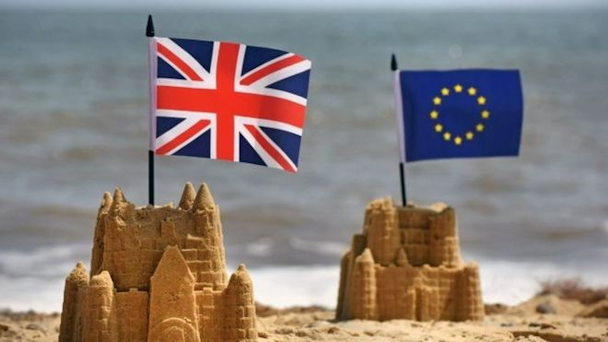Brexit and the travel business: what do digital marketers need to consider?
The clock is now officially ticking until Britain's exit from the European Union. What are some of the key areas that digital advertisers in the travel space need to concentrate on to aid their planning? Will domestic operators fare differently than those promoting outbound journeys?

What does Brexit mean for the travel business?
Having worked across a range of travel clients – including car rental, package holidays, airlines, cruises and direct with hotels – encompassing a variety of media channels and markets, these are the sorts of questions I’ve been asking myself since last summer’s referendum.
So, what do we need to be aware of and how do we factor this into our paid media approach?
European travel rights
Hopefully we won’t get to the stage where the residency status of ex-pat UK citizens or EU nationals living here become a serious bargaining chip. If we do, then something has gone terribly awry. Similarly, and despite the obvious removal of our free movement on the continent, we should be relatively confident that UK tourists won’t find it too arduous to continue to travel to their favourite EU holiday destinations. The tourism trades of many key European nations are just too reliant on their UK visitors to make this a significant negotiating chip.
Long haul visas
Remapping our relationship with the EU is only one side of the coin, however. We now need to head out into the world to arrange our independent trade agreements with the rest of the world. China, India, North America, South Africa, Australasia et al. We would be naïve to assume that they will not see Brexit as an opportunity to renegotiate their own citizens’ travel rights – be it for leisure, work or education. If this becomes a sticking point, will our future global partners tighten their own border controls for UK visitors to force their own agenda?
Economic implications
Any change to the economic prosperity of the UK will have a direct impact on the travel industry. Negative movement within consumer debt, wages or unemployment will lead to a contraction in travel demand. For leisure travel, the first thing to go in times of economic downturn is the family holiday abroad or the short city breaks. For business, will we see a drop in short haul in favour of Dubai, Delhi and Daegu? Will new business routes open-up due to our diversified trading ecosystem?
We also surely must monitor who is being affected by economic change (be it positive or negative). Are the upper socio-economic groups pulling further away from the national average, for example?
Exchange rates
The initial result of the referendum in June 2016 had an instant and drastic impact on the value of the Sterling which dropped 15% against the Euro and 18% against the Dollar over the following four months.
With the devaluation of GBP, travel brands should plan around the implications for their products.
British domestic tourism should understandably benefit from this situation with visitors enjoying better value. Outbound volume is where the real issue will lie though. With the Pound less valuable, British holidaymakers will have to consider carefully which destinations sit within their budget or which countries offer better exchange rates.
Early figures for 2017 already show a decrease in search interest for New York and Las Vegas – two cities that due to their nature as shopping and gambling centres respectively are “cash” destinations. Will a similar pattern become apparent for travel to economies tied to the US Dollar, such as the Caribbean? Will there be an increase in all-inclusive holidays as users are cautious over additional expenses while away? Which will be the growth regions with favourable rates? And finally, have you mapped out you own supplier commercials – which contracts with airlines or hotels are in US Dollar, for example?
Changes to booking patterns
2017 had an excellent start for many of our travel clients, with market interest up year-on-year and conversion rates strong. However, we noticed a few warning signs from the market as we moved through the first quarter – most notably a stark year-on-year drop in search volumes in several key areas once we came out of the traditional peak season of sales and offers. It would make sense if there is a leaning towards price competitivity.
The other possible reason here is that there are now additional factors we need to be aware of in our users’ decision making process. Will we see market interest align to the major milestones in the Brexit negotiations? Should we plan budget to mirror these as users want to remove uncertainty by booking just before significant announcements? Will this result in an increase in lag time between booking and travelling?
In part two of this blog, having outlined the various factors to consider, we’ll look at what digital marketers in the travel business should be doing over the next two year negotiation period.
Content by The Drum Network member:

ROAST
We are ROAST.
Our goal is simple, to increase the return on your advertising spend (ROAS).
We do this by simplifying the problem and moving forward...

